(Last updated on 13/10/2025)
Located in La Vera area of Cáceres province, Cuacos de Yuste is a charming village mainly known for its nearby Yuste Monastery, where the Holy Roman Emperor Charles V chose to spend his last days. It has notable examples of traditional architecture, several pretty squares and a good place for wild swimming.
This destination mini-guide includes what you need to know to visit Cuacos de Yuste – from the main sights and other things to see and do, to practical info and personal tips on things like how to get there, where to park or where to stay.

This post contains affiliate links. If you click through and make a purchase, it will generate a small commission for me, at no extra cost for you. Read the full disclosure for more details.
Table of contents
Three facts about Cuacos de Yuste:
1. The history of Cuacos is inextricably linked to Charles V, Holy Roman Emperor, who retired to and later died in the nearby Monasterio de Yuste.
2. The only German military cemetery in Spain is located in Cuacos, near the monastery. Managed by the German War Graves Commission, it contains the remains of 180 German soldiers from WWI and WWII buried in Spain.
3. Before the 1960s, Cuacos de Yuste was named Cuacos de La Vera.
How to get to Cuacos de Yuste
You can get to Cuacos de Yuste either by coach or by car.
Getting to Cuacos de Yuste by coach
Samar serves Cuacos from Monday to Sunday from Madrid (Estación Sur de Autobuses and Estación Príncipe Pío). The journey duration to Cuacos is 3h 50min and 4h 10min, respectively. Tickets can be purchased in advance online
Alsa serves Cuacos from Monday to Friday from the following Extremadura destinations: Jaraíz de la Vera, Jarandilla de la Vera, Losar de la Vera, Plasencia, Navalmoral de la Mata, and Cáceres. Tickets can be purchased in advance online.
Coach journey duration to Cuacos de Yuste:
From Jaraíz de la Vera: from 10min to 30min, depending on the service
From Jarandilla de la Vera: from 15min to 20min, depending on the service
From Losar de la Vera: from 24min to 30min, depending on the service
From Plasencia: from 50min to 1h 25min, depending on the service
From Navalmoral de la Mata: from 1h 10min to 1h 15min, depending on the service
From Cáceres: 2h 35min
Cuacos bus stop is located on Avenida de la Constitución, in front of the local early years and primary school.
Recommended read: A guide to travelling Extremadura by coach
Getting to Cuacos de Yuste by car
If you’re driving from Madrid, you have two options:
Option 1: take the A-5/E-90 motorway (Autovía del Suroeste) and get off at exit 185 onto the EX-A1 road Plasencia-bound. Get off the EX-A1 at exit 9 onto the EX-108, then join the CC-17.2 to Jaraíz de la Vera. Follow the main road in Jaraíz (EX-392) and turn right at this junction to join the EX-203, which will take you to Cuacos de Yuste.
Option 2: take the M-501 road towards San Martín de Valdeiglesias. Once in Castile and León, the road is called C-501. Keep driving west on the C-501 into Extremadura, where the road then becomes the EX-203 road. This road will take you to Cuacos de Yuste.
If you’re driving from Plasencia, take the EX-108 road Madrid-bound across the bridge, then the EX-203 to Jaraíz de la Vera all the way to Cuacos de Yuste.
If you’re driving from Cáceres, your main point of reference will be the A-66/E-803 road (Autovía Ruta de la Plata) running through Extremadura from north to south. Drive on the A-66/E-803 road Salamanca-bound to Plasencia and get off at exit 479 onto the EX-A1 road towards Navalmoral de la Mata and follow the Navalmoral signs. Get off at exit 42 onto the EX-108 road towards Malpartida de Plasencia, then follow the signs for Navalmoral. At this roundabout, take the EX-203 road to Jaraíz de la Vera all the way to Cuacos de Yuste.
Typical car journey durations to Cuacos de Yuste:
From Madrid: (option 1) 2h 22min; (option 2) 3h 11min.
From Plasencia: 38min
From Cáceres: 1h 19min
Parking in Cuacos de Yuste: you should easily find a free on-street parking spot on the main EX-203 road (Avenida de la Constitución).
What to see in Cuacos de Yuste
Monasterio de San Jerónimo de Yuste
Known as the last resting of Charles V, Holy Roman Emperor, this (working) monastery is an unmissable sight in northern Extremadura. Located in a peaceful natural setting surrounded by hills, the monastery complex comprises a house-palace, a late-Gothic church, a Gothic cloister, a Reinaissance-style cloister, a large pond, and beautiful gardens and grounds. Some notable highlights include the furniture and art collection in the house-palace, the church’s stellar vault, and the views of the garden and pond from the Reinaissance-style cloister.
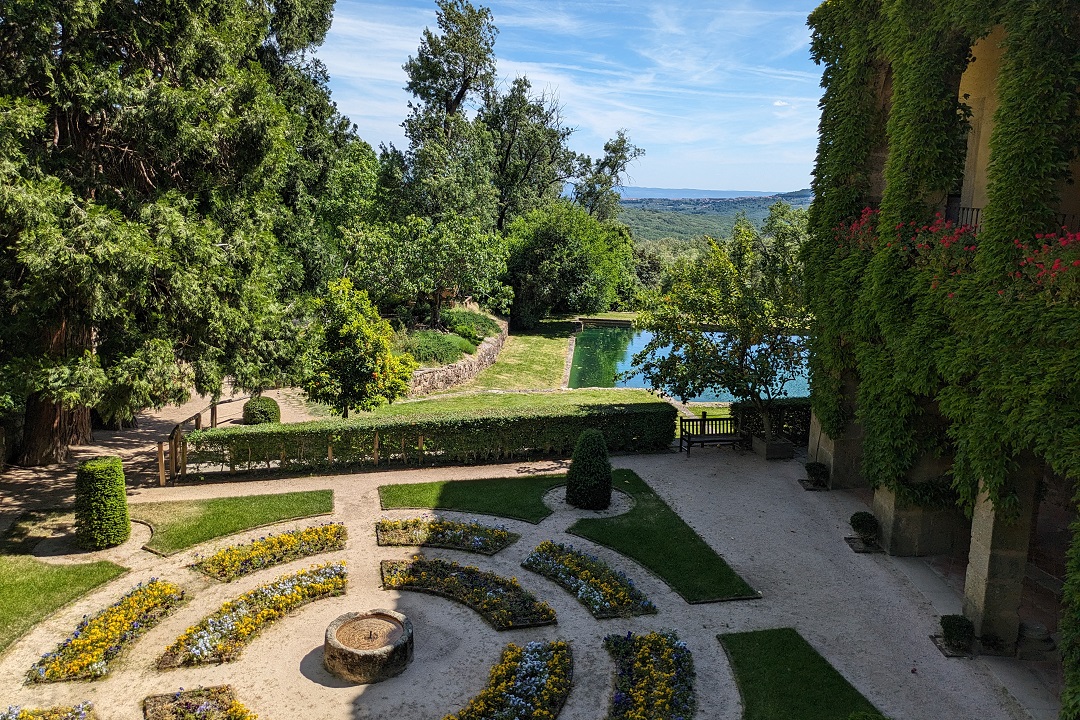
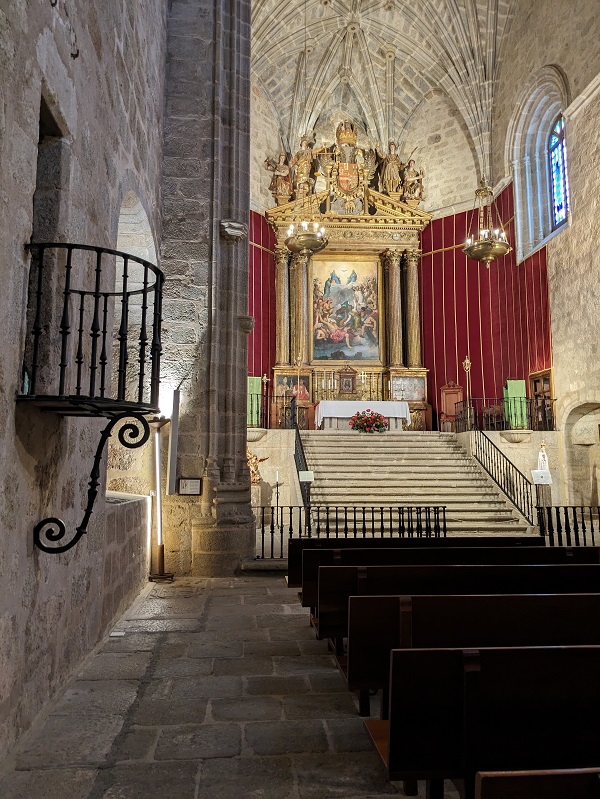


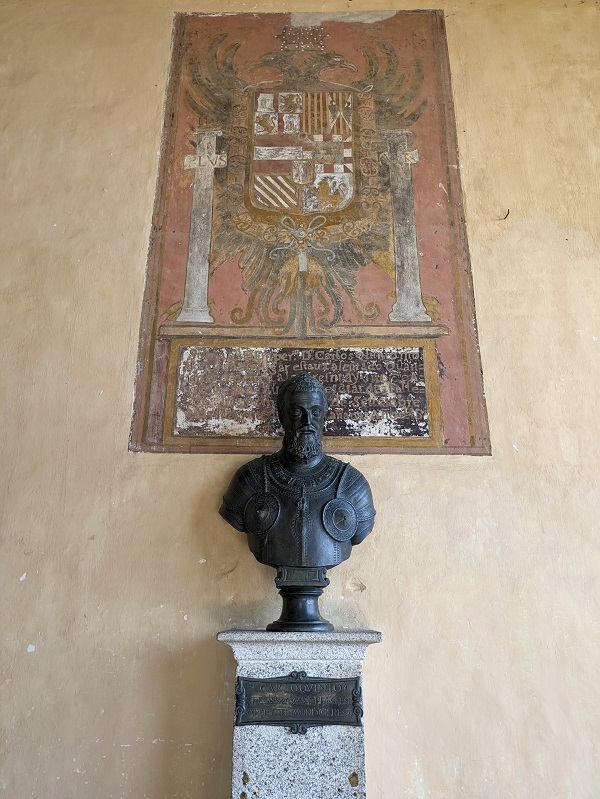
Location: Carretera de Yuste, s/n. The monastery is located about 1.5km northwest of Cuacos, on the EX-391 road which connects Cuacos with Garganta la Olla.
Opening hours: (October-March): Tuesday-Sunday from 10am to 6pm; (April-September) Tuesday-Sunday from 10am to 7pm.
Tickets: book them online on Patrimonio Nacional’s website.
Entry fee: the general entry fee is €7. Reduced fees available. Free entry on Wednesdays and Sundays from 3pm to 7pm for EU citizens.
Plaza de España
In this porticoed square you’ll find the town hall (also home to the local tourist office), with its pretty bell-tower metalwork at the top, a classic La Vera-style round fountain, several shops selling traditional regional products, and a few bars. The weekly street market is held every Friday on this square. During my last visit to Cuacos the bars had tables outside, so I sat down and enjoyed a cold drink on a warm Sunday evening looking at the pretty balconies on the porticoed side of the square.
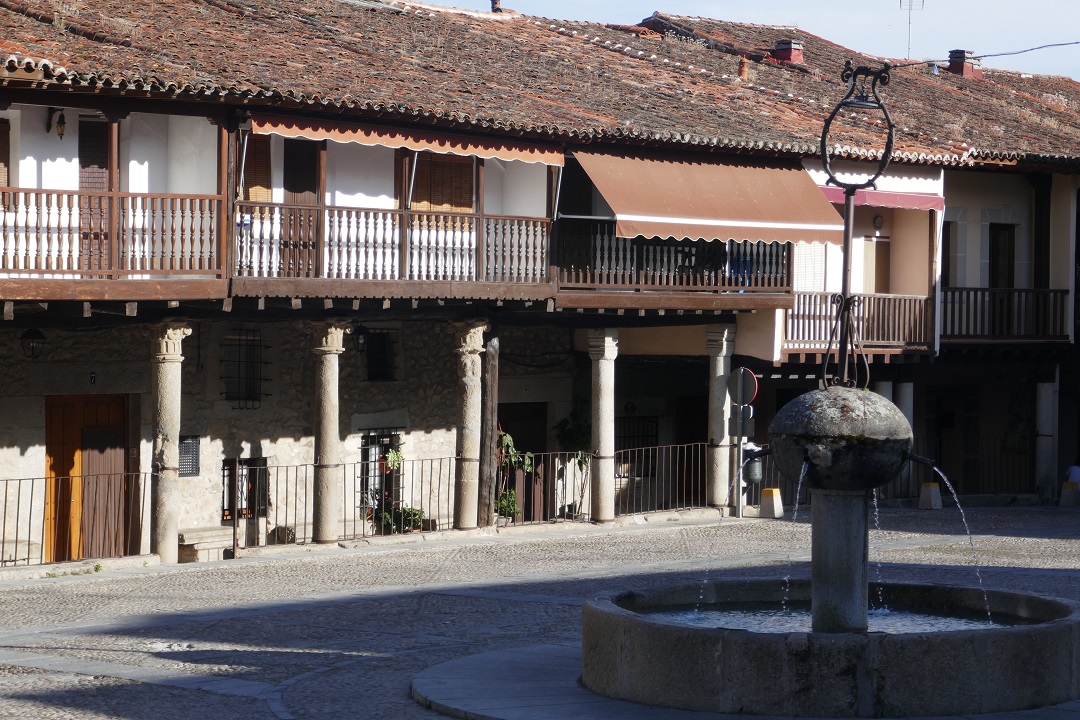
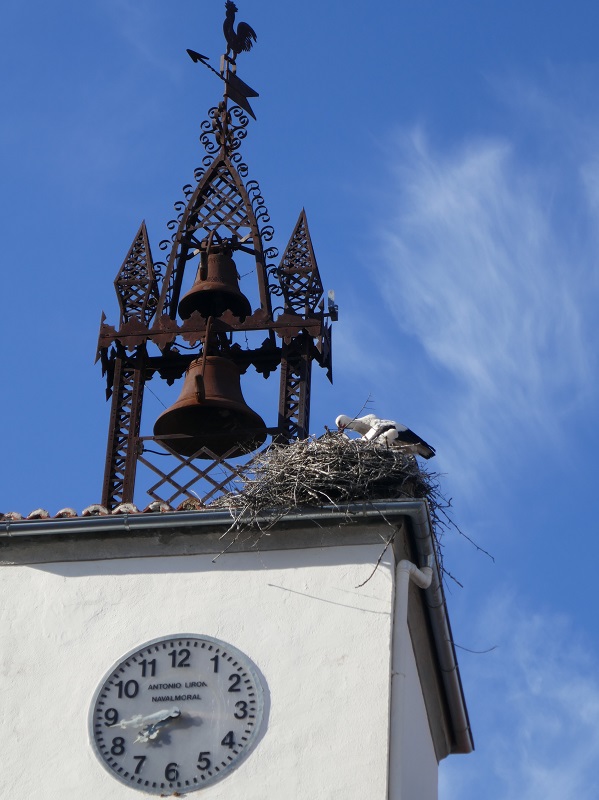
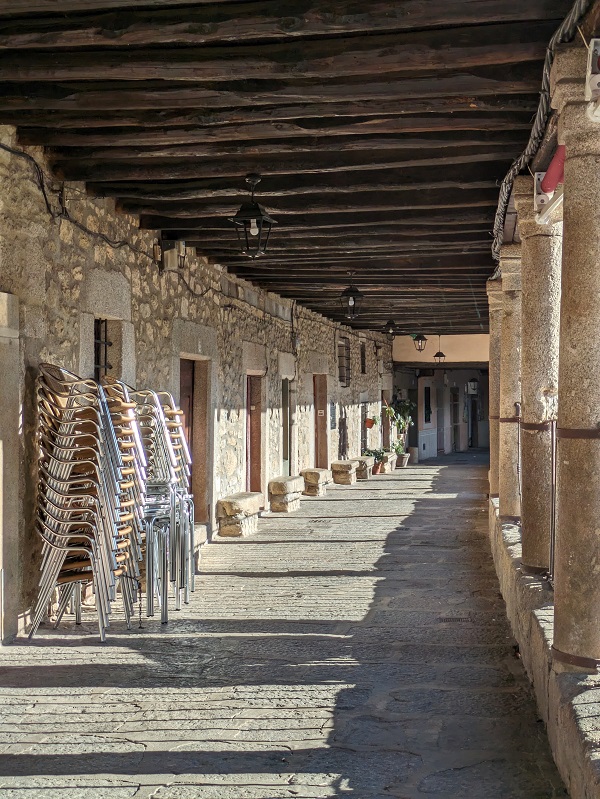
Plaza de Juan de Austria
Named after the illegitimate son of Charles V, this quirky oval square features some great examples of traditional houses supported by wooden beams and columns (including the house where Juan stayed at when visiting his father), as well as a nineteenth-century fountain, and a stage. From the viewpoint atop the huge rock in the centre you’ll appreciate the elevation of this square over the village and enjoy some great views.
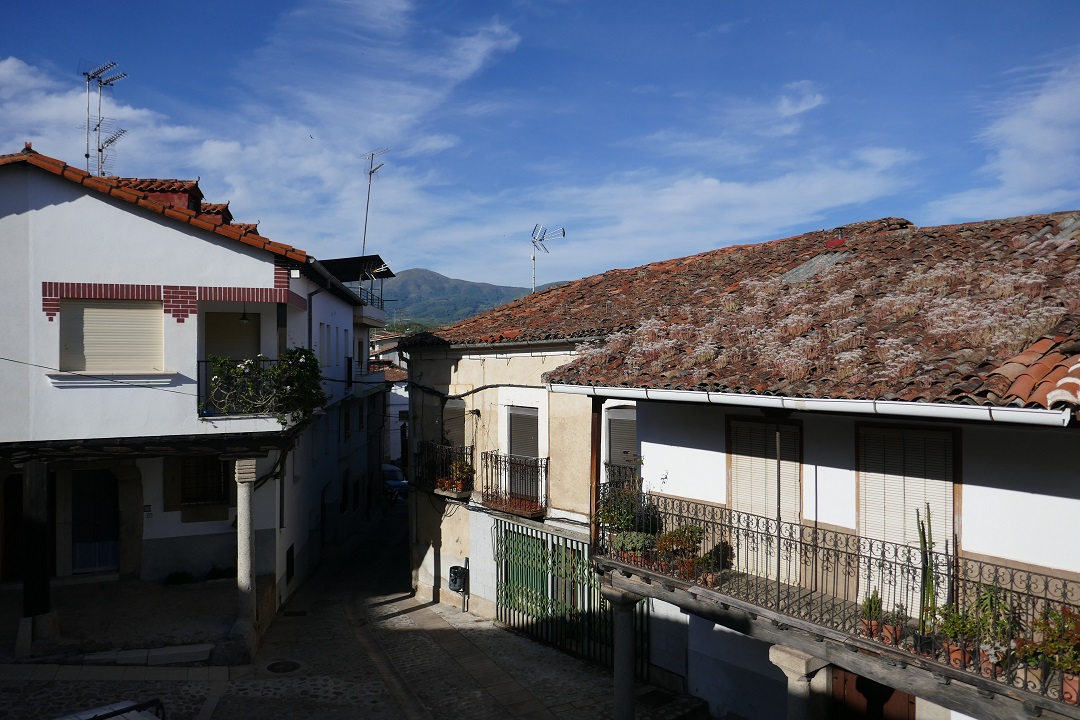
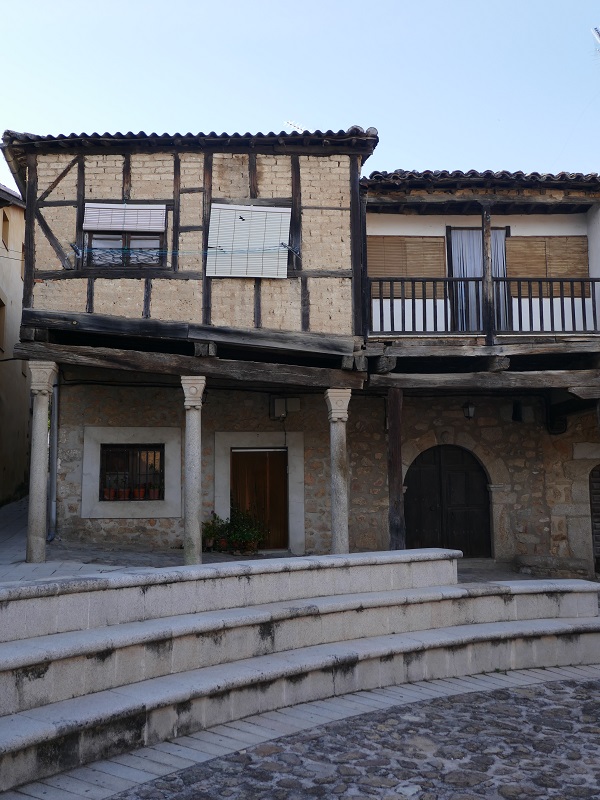
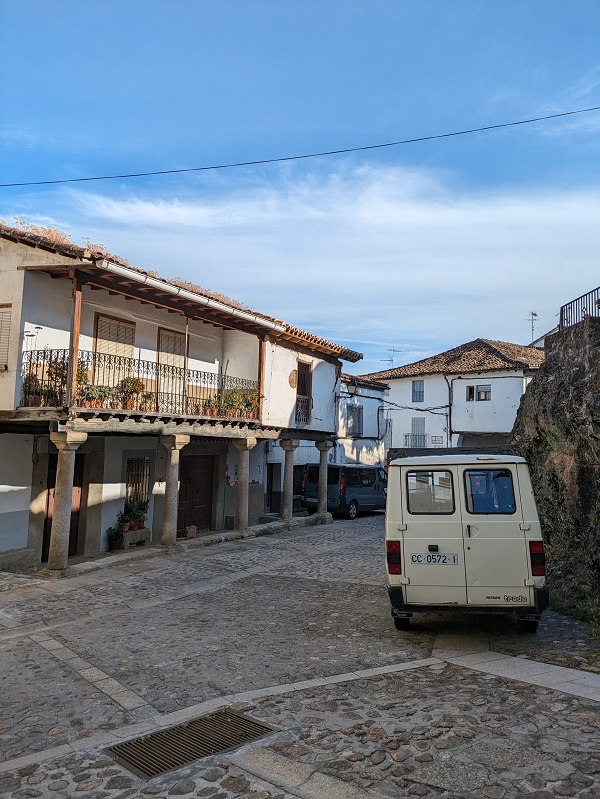
Plaza de la Fuente de Los Chorros
Good things come in threes, and in Cuacos, it’s about squares. This irregular little plaza radiates rural charm, with the sound of water gushing out of a nice stone fountain as a background to a bucolic village scene of half-timbered houses, a profusion of flowerpots and a stunning stone house on the corner.
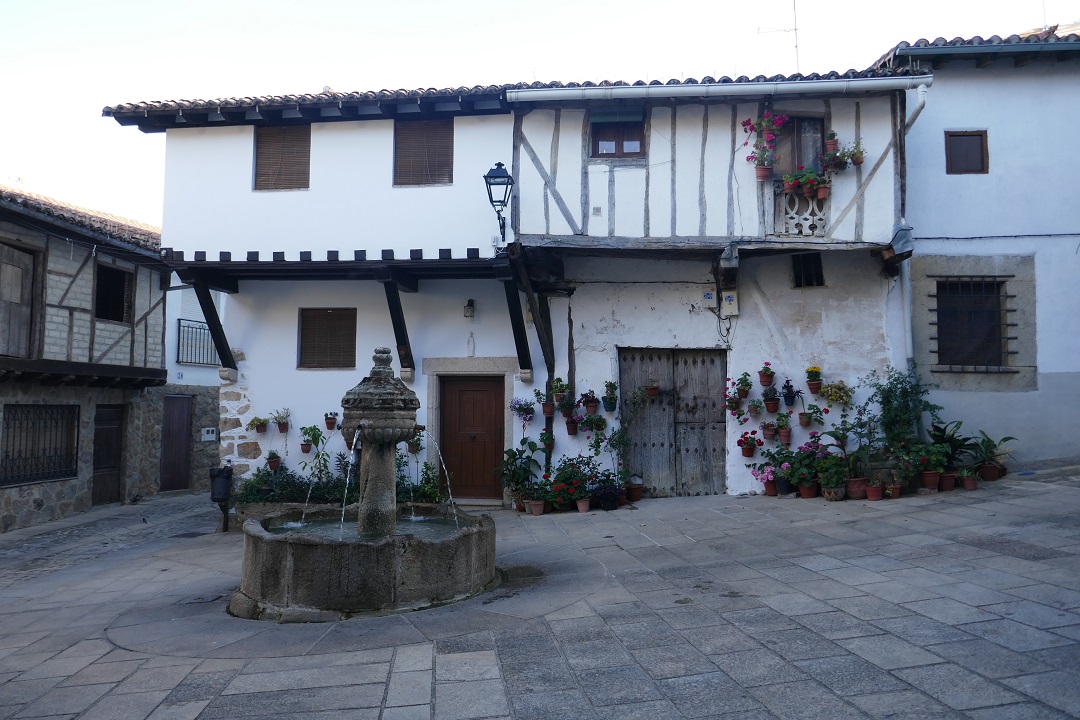
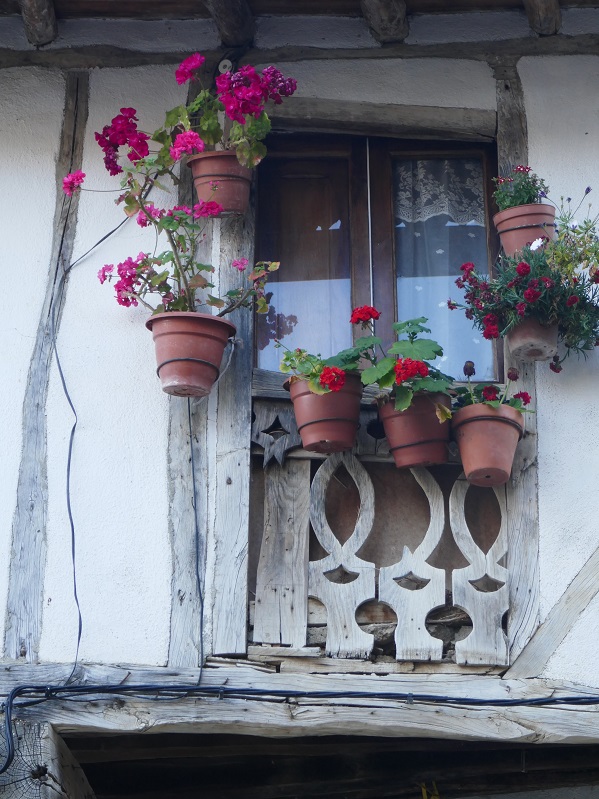
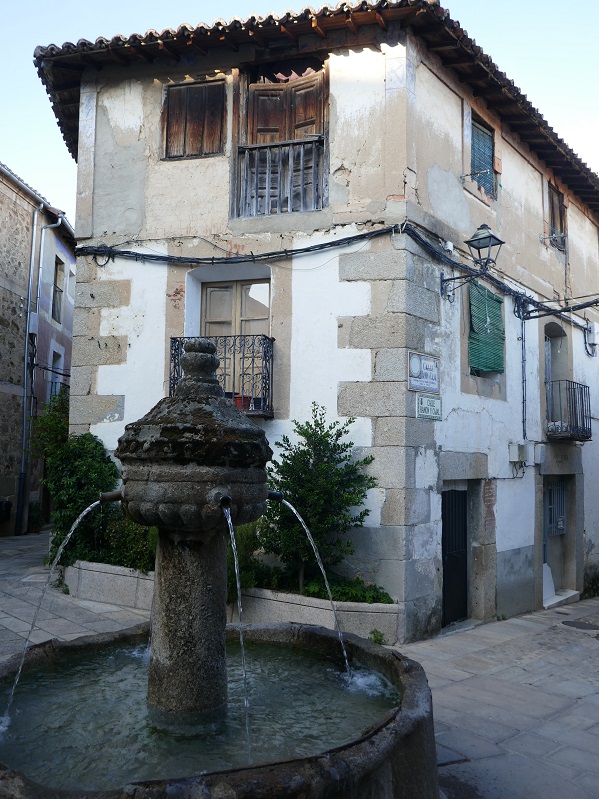
Iglesia de Nuestra Señora de la Asunción
Not far from the Plaza de la Fuente de Los Chorros you’ll find the rather robust-looking local parish church, built over the remains of a thirteenth-century military construction. Inside, some highlights include a Baroque-style organ and several interesting altarpieces; unfortunately, the church was closed when I visited and I can’t share my personal thoughts, but the exterior is worth seeing.
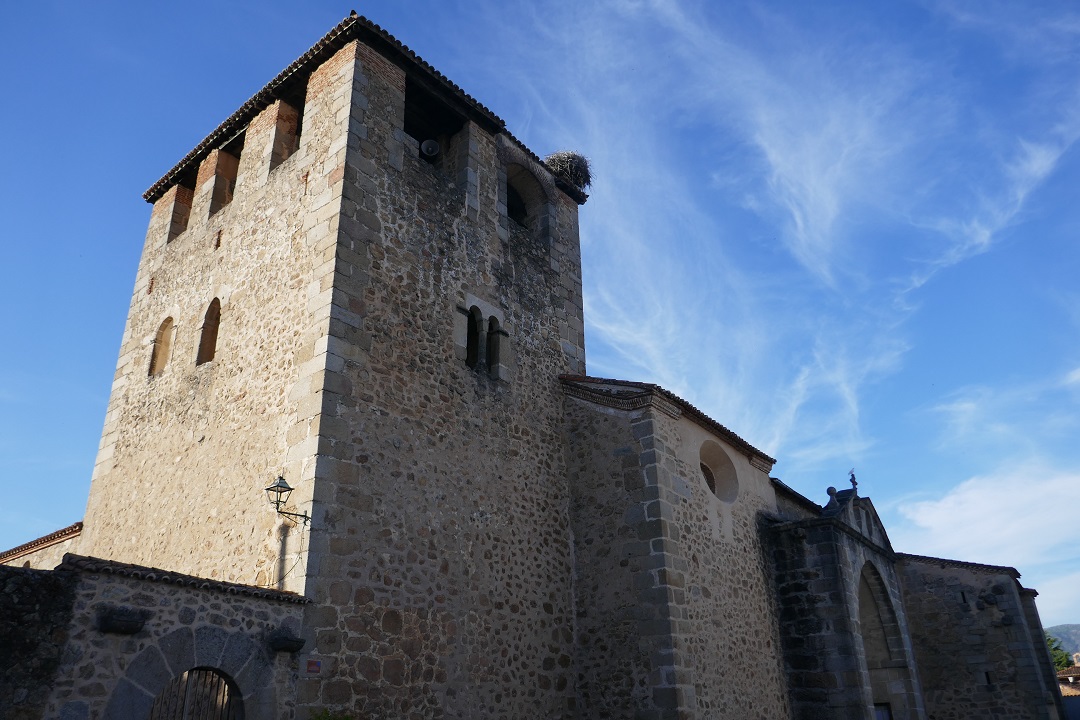
Location: Plaza de la Iglesia
El Bañaero
El Bañaero is where you should head to for a refreshing dip in cold water, if you visit Cuacos on a hot summer day. This tranquil pool, situated on garganta de Cuacos to the east of the village, is accessed from a path starting next to the local swimming pool (Piscina Municipal). Follow the signs for ‘Paraje El Bañaero’, leave your car at the little parking area and walk across the metal footbridge to reach the pool. If you visit outside the summer months (and can handle absolutely freezing water), you’ll have the place all to yourself.
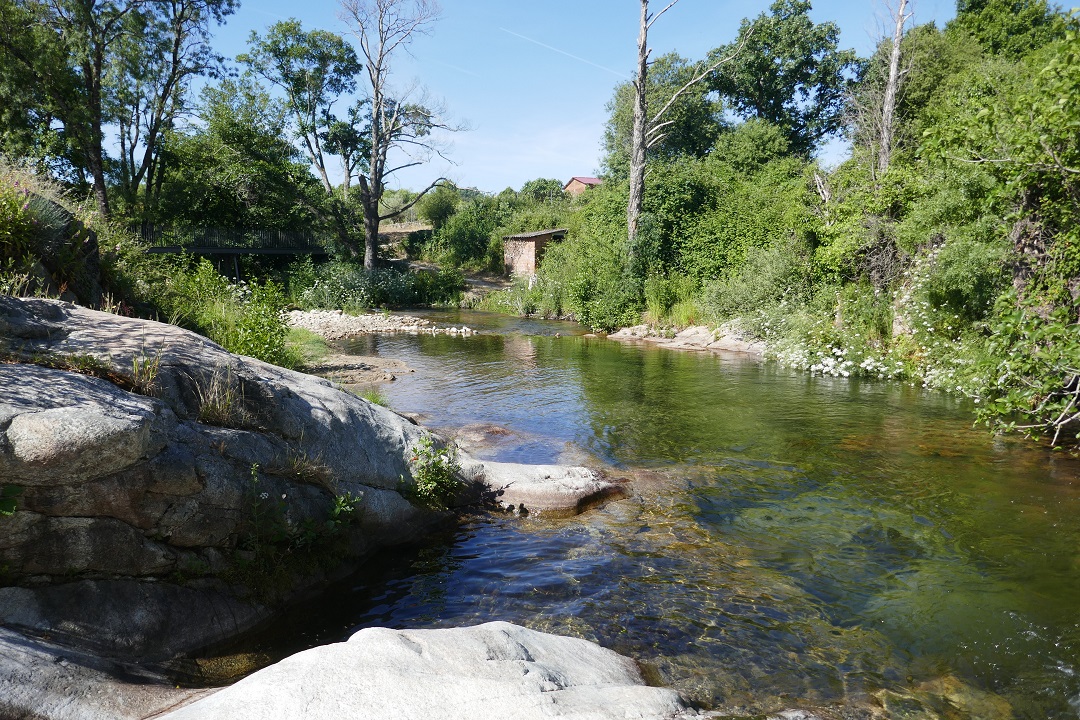
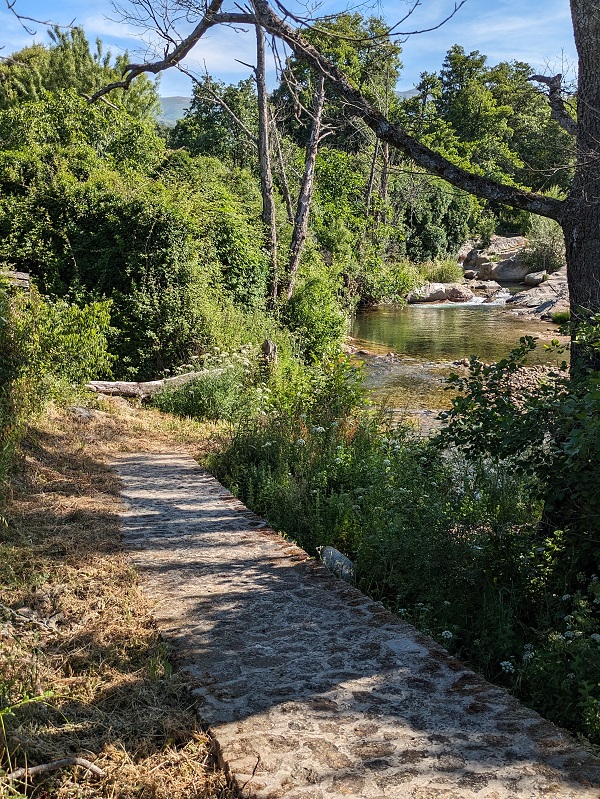
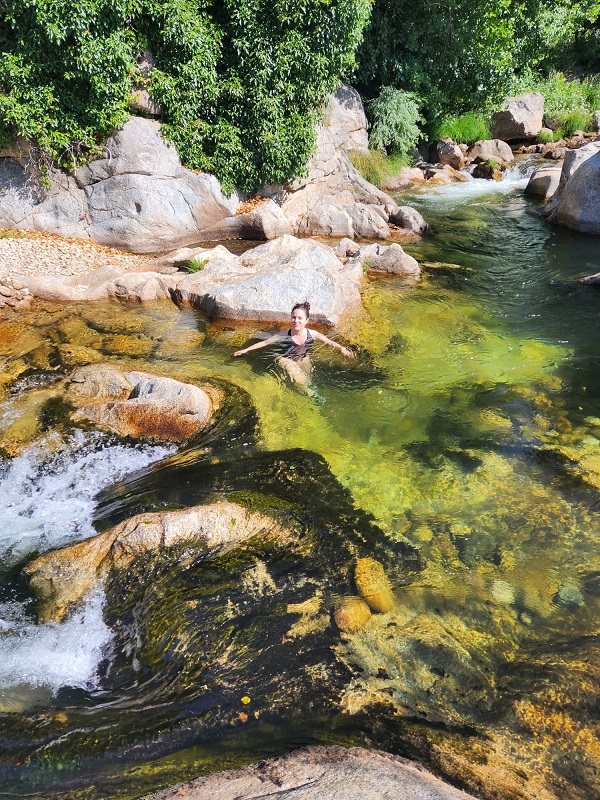
Location: lat. 40.1047, long. -5.71779
What to do in Cuacos de Yuste
Wander around
Cuacos is one of the best places in the area to see traditional La Vera-style architecture. Take your time to wander around the centre and you’ll notice lots of many beautiful architectural details.
These are some of the things to look out for:
The double-lanced window at Mansión de Rafael Castaño, a sixteenth-century house located in Calle Teodoro Perianes, 16.
The geometric decoration on the facade of number 12 in Calle Teodoro Perianes, and on the façade of number 16 in Calle Hernán Cortés.
The line of beams on the side of the white house at the corner of Calle Gabriel y Galán and Avenida de la Iglesia.
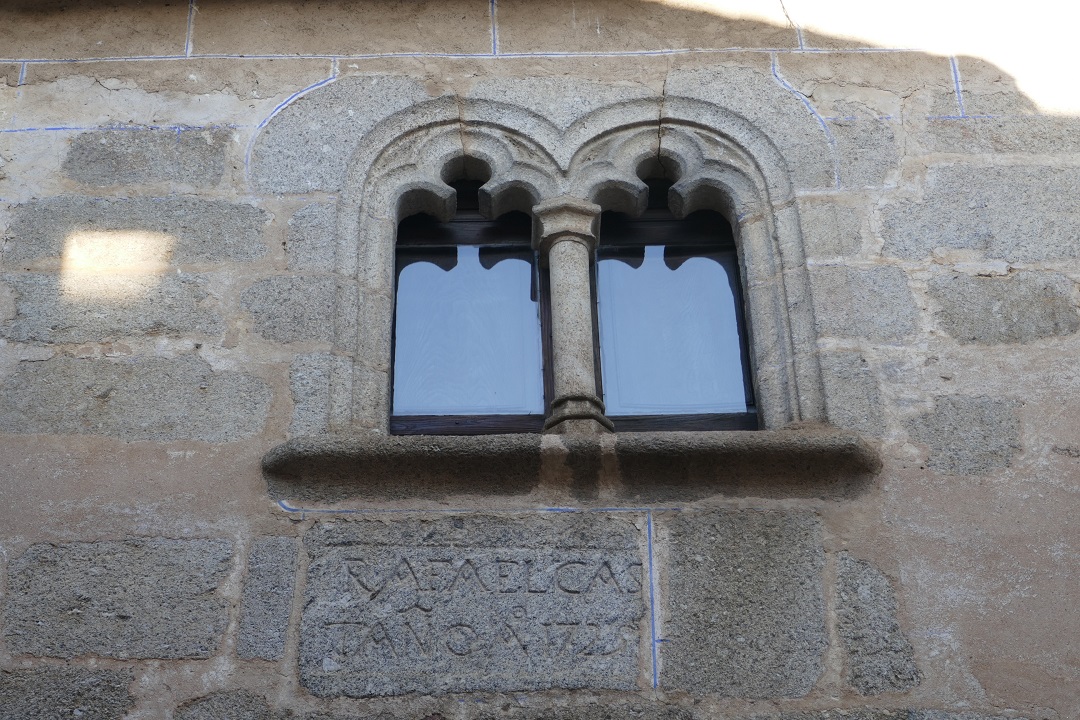
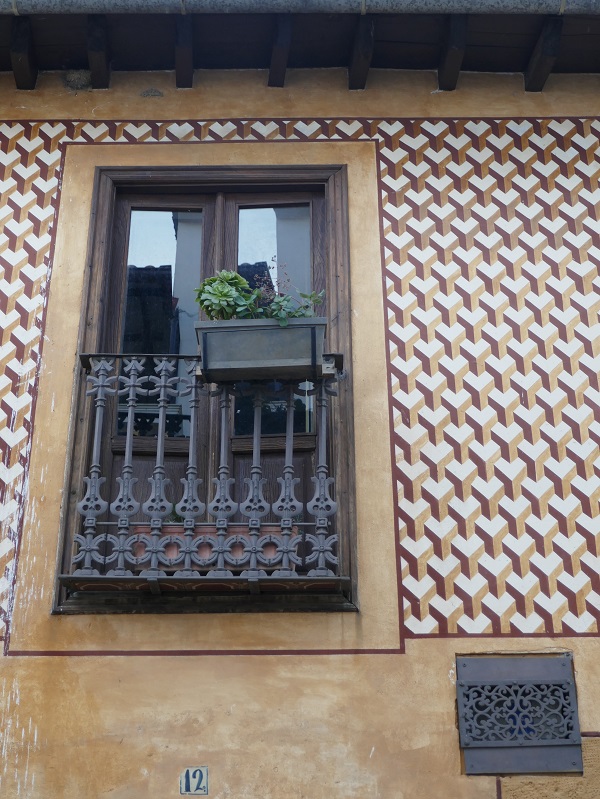
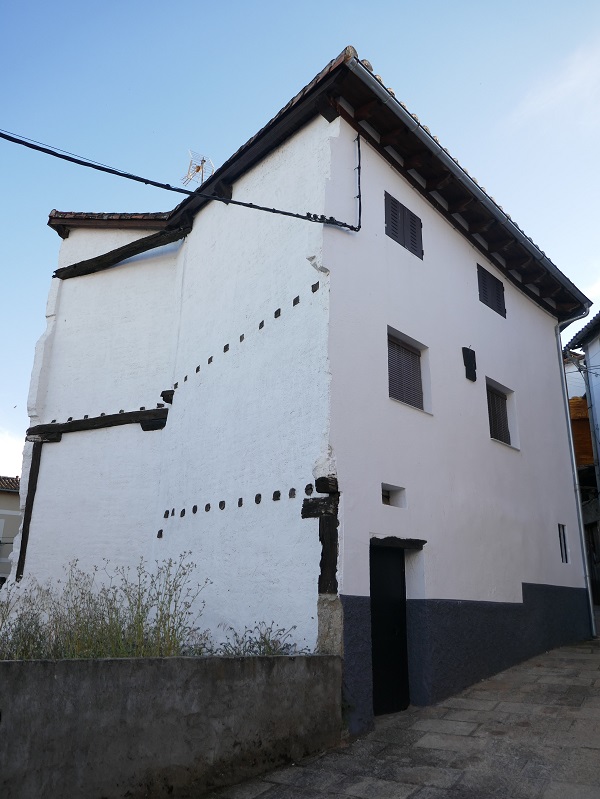
Stay or eat at Hotel Rural Abadía de Yuste
This hotel, located on the main EX-203 road, is a good accommodation option in Cuacos de Yuste. I stayed here during my last visit and I’d recommend it for a short stay based on that experience. My double room was bright and spacious, with a comfortable bed and a good-sized ensuite. Wi-Fi worked well. The staff was attentive (I found the woman at reception particularly nice and chatty).
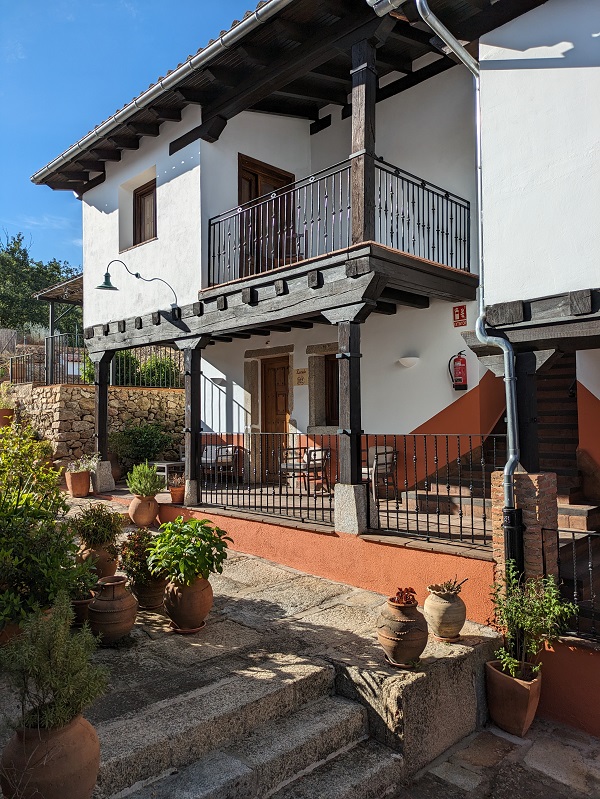
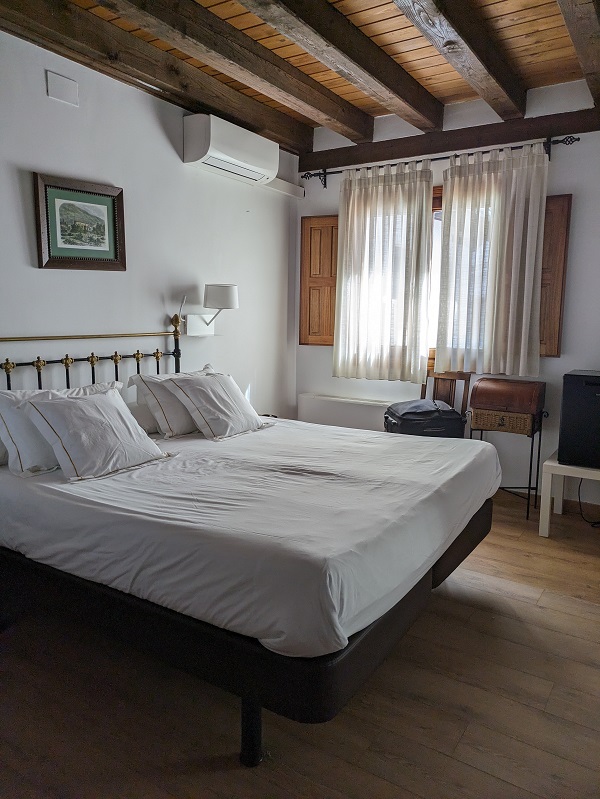
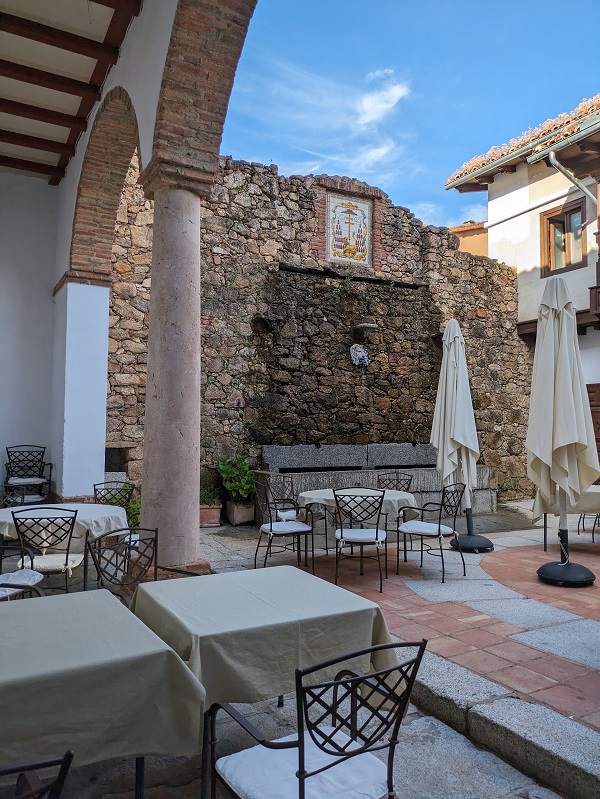
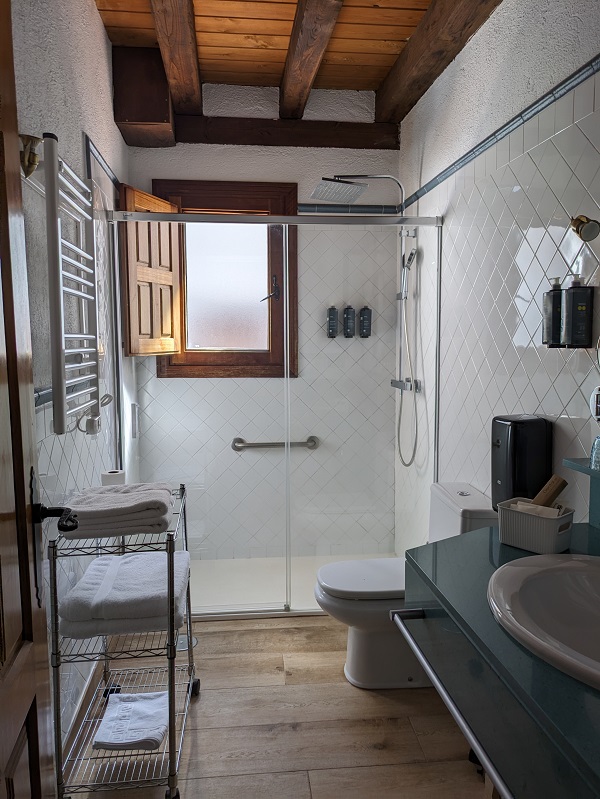
If you have other accommodation plans already, I’d still recommend eating at its on-site restaurant. On my last visit, I travelled as a couple and these are the dishes we had:
• braised Ibérico pork secreto (shoulder cut) with wild mushrooms, roasted potatoes and aioli;
• biscuit and chocolate cake, served with custard and plain ice-cream;
• torcío de Cuacos (traditional fried, sugary pastry tube) filled with custard, served with violet sweet-flavoured ice-cream and cherries.
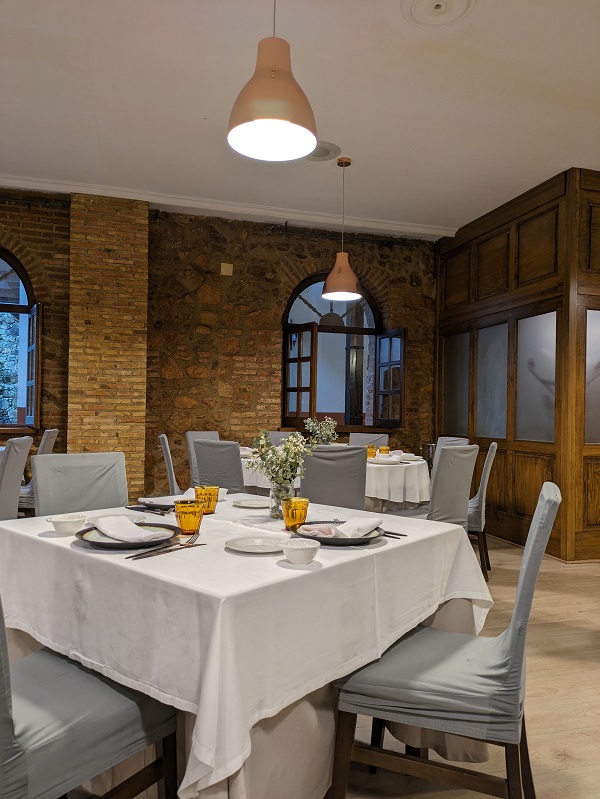
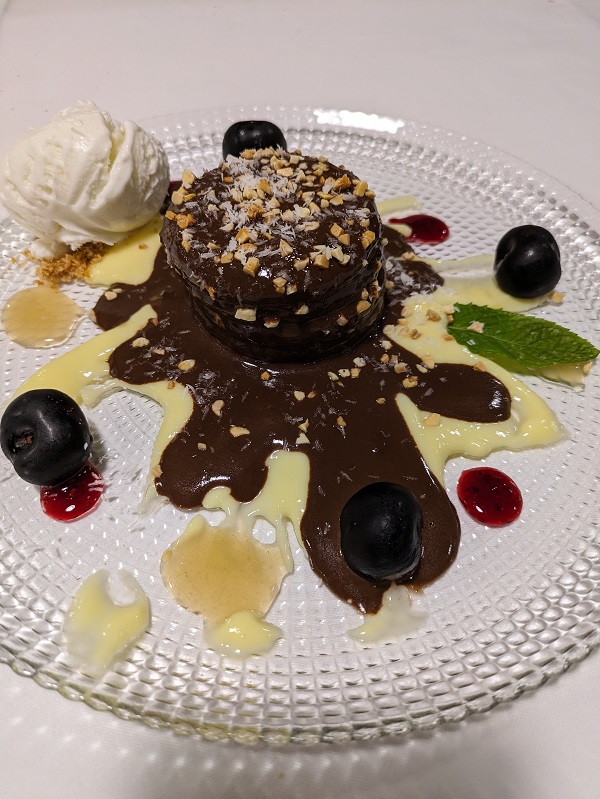
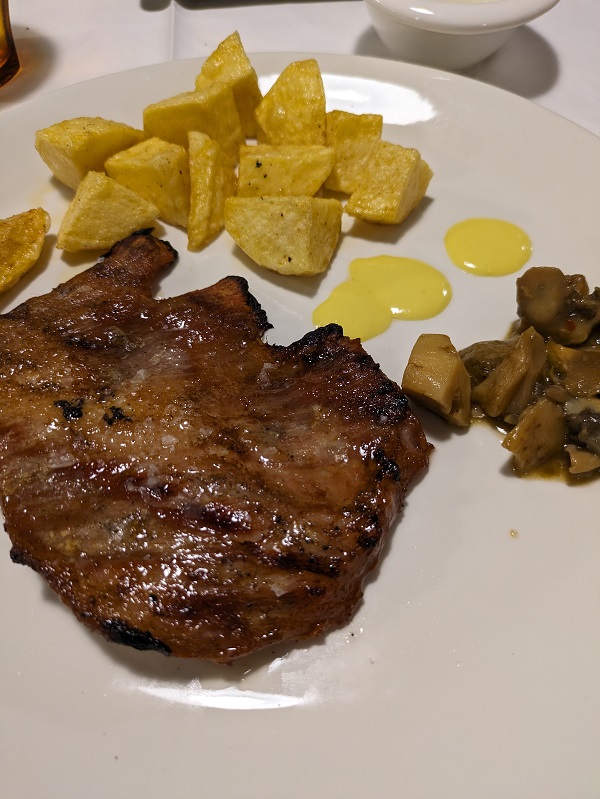
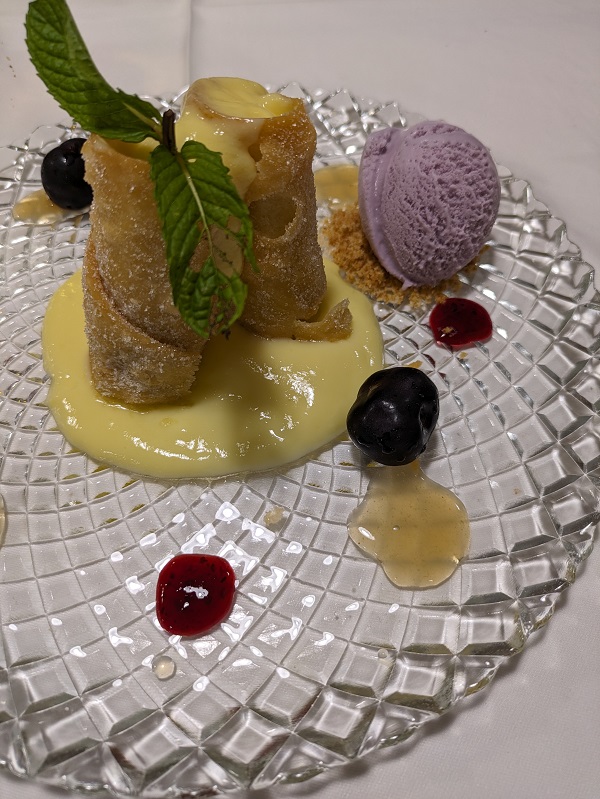
Location: Avenida de la Constitución, 73
Parking: free on-street parking
Things to see and do near Cuacos de Yuste
Visit Garganta la Olla
Garganta is a picturesque village about 15min from Cuacos worth visiting for its rich architectural heritage and wild swimming possibilities. Don’t miss its Jewish quarter (Barrio la Huerta), its main square, the Casa de las Muñecas (former brothel), the quirky Casa la Peña, and the river pools on Garganta Mayor.
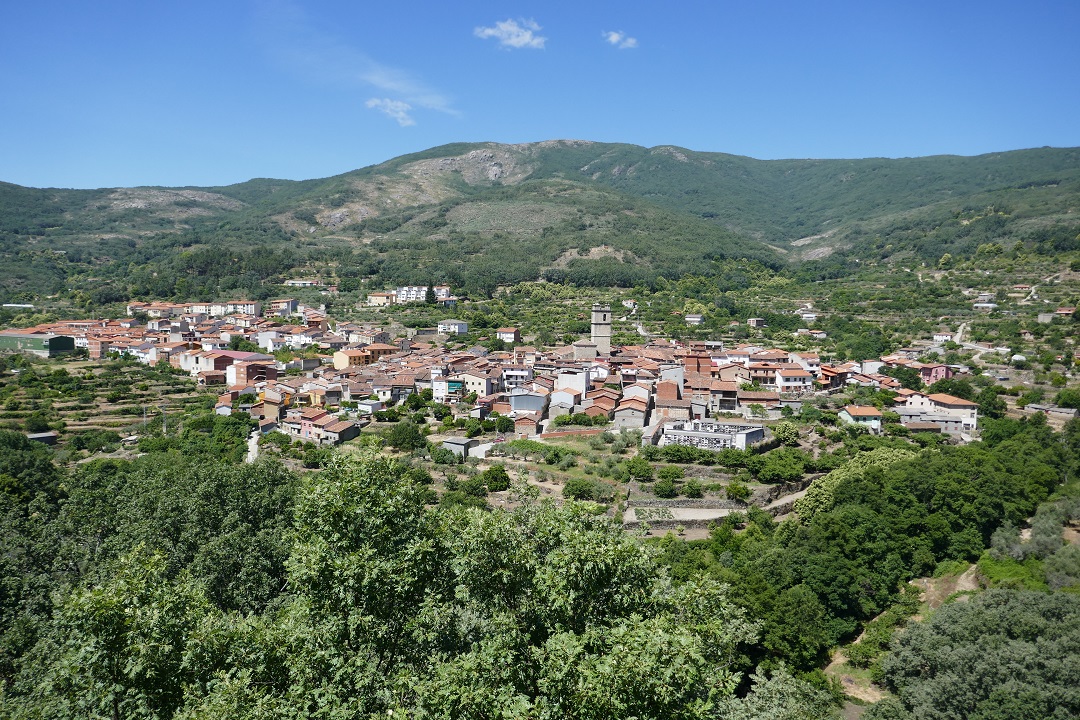
I recommend driving there past the Yuste Monastery on the EX-391 single-track road (camino rural) and stopping at the ‘Mirador de la Serrana’ viewpoint to enjoy the lovely view above before heading into the village.
Map of Cuacos de Yuste
Find all the places mentioned in this article on the map below.
Other things to see and do in La Vera:
This content is protected by copyright and belongs exclusively to Irene Corchado Resmella. To know exactly what this means, read the 'Copyright' section in the Website terms of use.
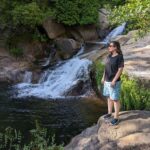
Irene Corchado Resmella
Hi! I’m Irene (/ee-REH-neh/). Long since settled in the UK, I explore my Spanish home region of Extremadura with an inquisitive mind, a sharp eye, and the duality that comes with being both a local and a visitor. Then I write about it here to help you discover this beautiful yet overlooked part of Spain. If you have any questions after reading this article, submit a comment below! Read more about me.
